Developing the Show
Romeo, D. (2020) Early Devising Rehearsal, digital image, Zoom, London.
Planning for Sovereign Song began in the fall of 2020. Once Manda Jønsson and Octavia Fox joined the creative team, we began exploring concepts and mechanics. Originally, I had intended for the production to center on themes of the refugee experience, based on my own fears of how refugees are treated in the US. However, none of the creative team had firsthand knowledge of the refugee experience, and it felt unethical to continue with that concept. Instead, we shifted our focus to immigration and Brexit, as all three of us had experienced both in some capacity. Many of the early mechanics were developed through sharing stories of the frustration of bureaucracy, such as communicating in a foreign language, finding/collecting the correct forms, answering impossible questions, etc. We collaborated to create our first scratch showing (see Appendix B), which ultimately shaped the first few minutes of the final product.
Through my internship with COLAB, I negotiated the use of the COLAB Tavern for the production. The final agreement was that COLAB would co-produce Sovereign Song with CrushRoom, and that CrushRoom would be allowed to use the space free of charge and keep all ticket sales while COLAB took any bar sales. Upon moving into the tavern I also enlisted the help of Esme Cooper and Charlotte Potter, colleagues at COLAB, who agreed to collaborate on Sovereign Song for a share of the profits.
Romeo, D. (2021) Plot Chart 1, digital image, CrushRoom, London.
Romeo, D. (2021) Plot Chart 2, digital image, CrushRoom, London.
CrushRoom began rehearsals with the entirety of the show planned in a chart of narrative beats. However, once rehearsals began, collaborators began offering significant contributions and alterations which streamlined, heightened, and enriched the production. The chart above reflects major changes to the skeleton of the production contributed by collaborators, with all original plans in black and all changes in red.
With the narrative structure in place, we began designing content for the production. Despite the vast majority of the content being made from scratch, access to the space was limited, and most content was created over the course of one month, May 2021. Character profiles for audience members to steal were created to link with online materials or live phone calls, maps were designed for the attack/escape, the national anthem we wrote for the scratch sharing was orchestrated, an educational rap video was written and recorded, radio broadcasts for multiple endings were written and recorded, games were designed for recruitment activities, documents were designed for the application forms and citizenship test, soundscapes were created, and much more! (See Appendix B)
The final member of the team joined just a day before performances began. Ross Carmichael, stage manager, made an immediate impact by organizing the technical aspects into a run sheet (see Appendix B) and streamlining the backstage process of the performance.
Appendix A
Romeo, D. (2020) Early Devising Rehearsal, digital image, Zoom, London.
Romeo, D. (2021) Plot Chart 1, digital image, CrushRoom, London.
Romeo, D. (2021) Plot Chart 2, digital image, CrushRoom, London.
Appendix B
Romeo, D. (2021) Sovereign Song Scratch Sharing, [Webinar]. [Online]. Royal Central School of Speech and Drama, 3 March, 2021.

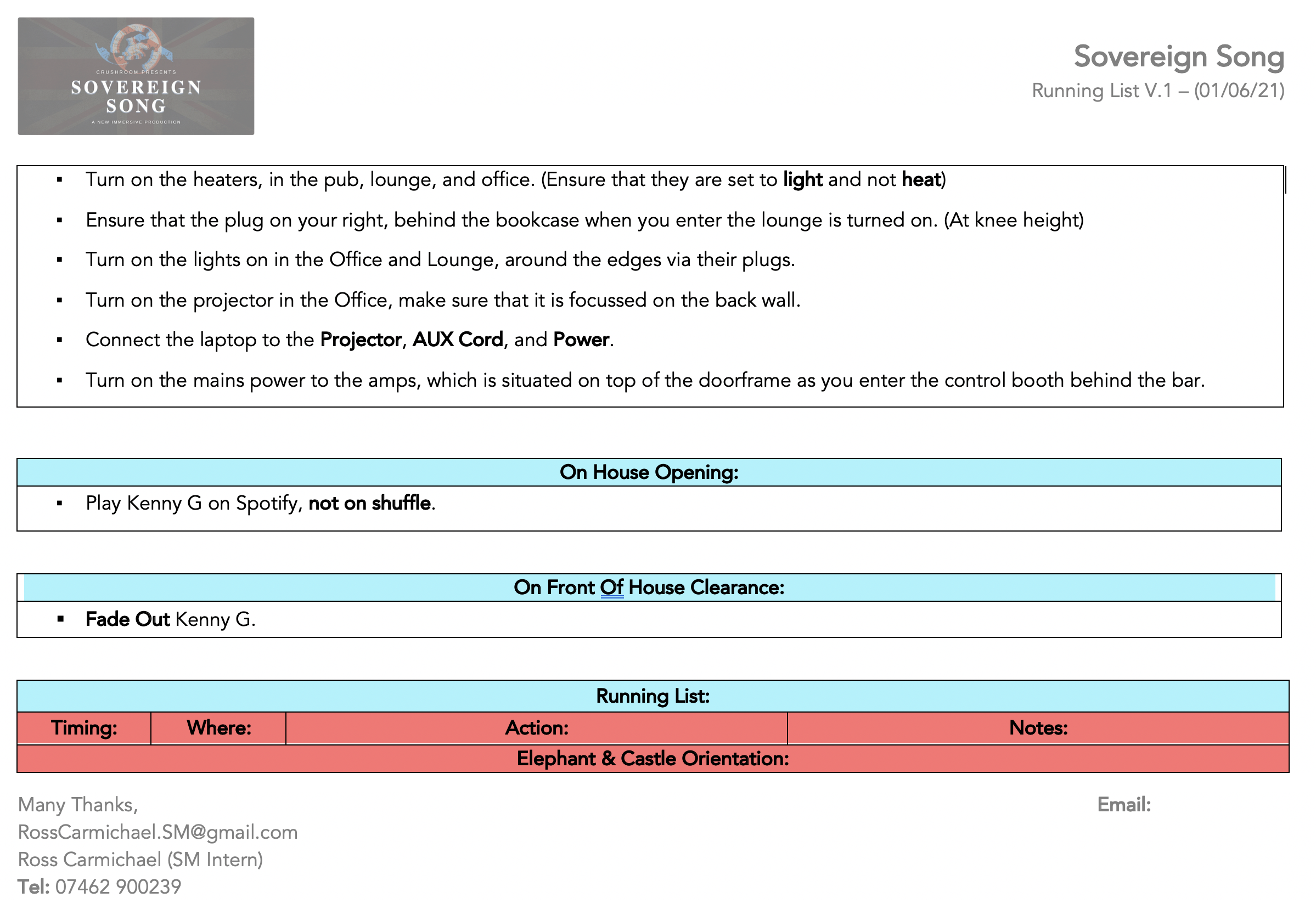





Carmichael, R. (2021) Sovereign Song Run Sheet, CrushRoom, London.
Romeo, D. (2021) Sovereign Song Orientation Video, [online video]. Available at: https://youtu.be/PlRiF-hgAos
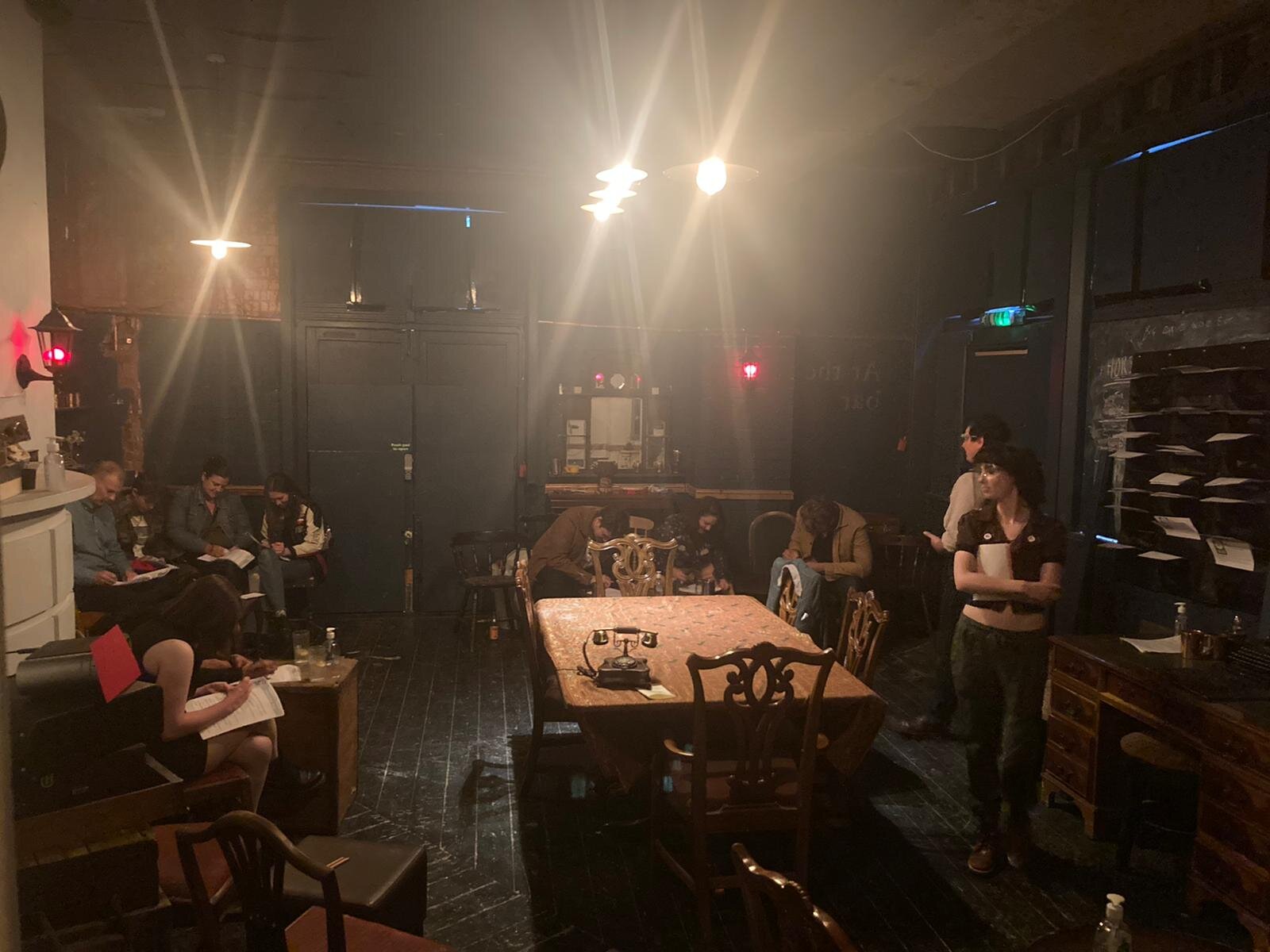





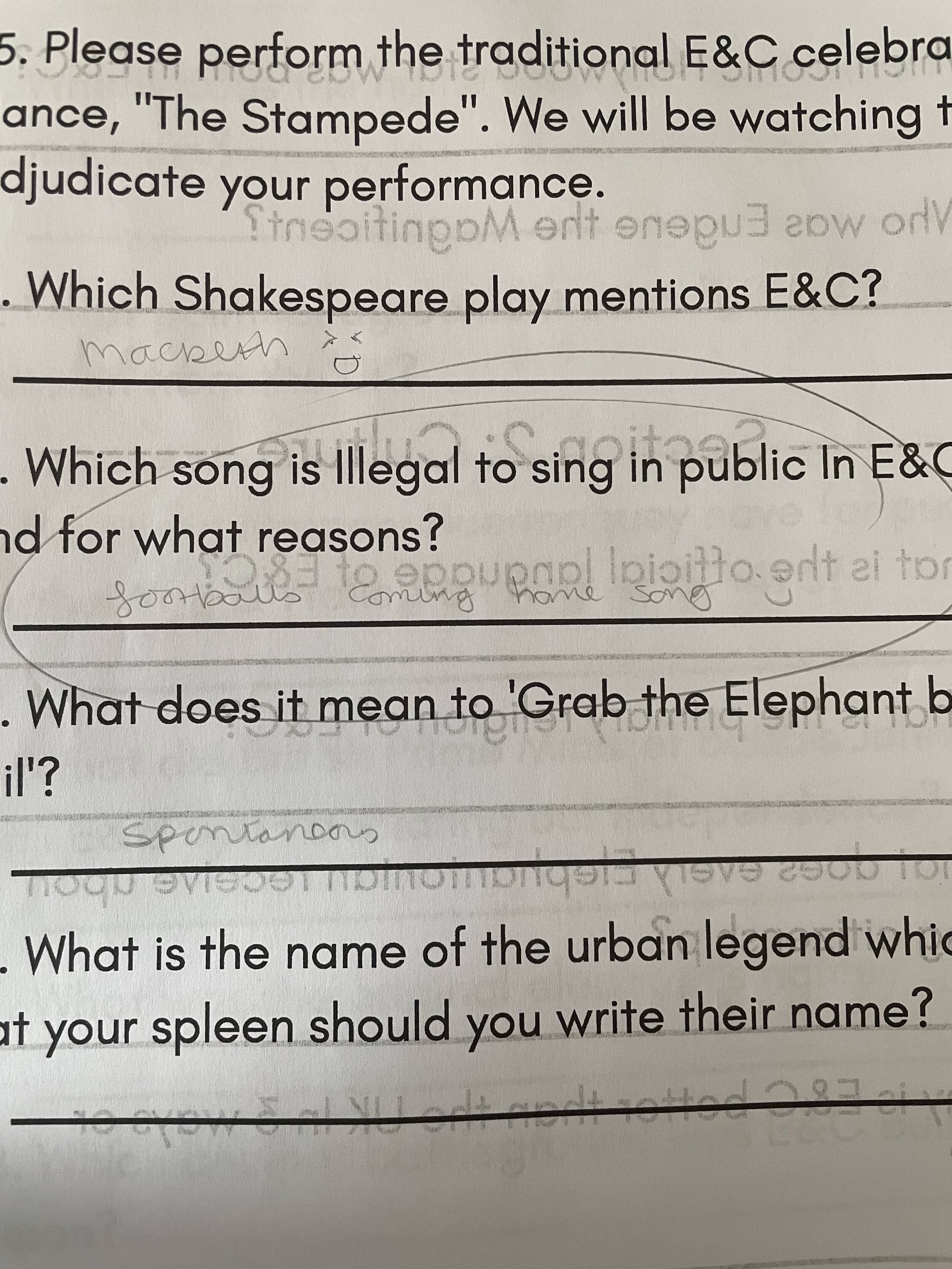
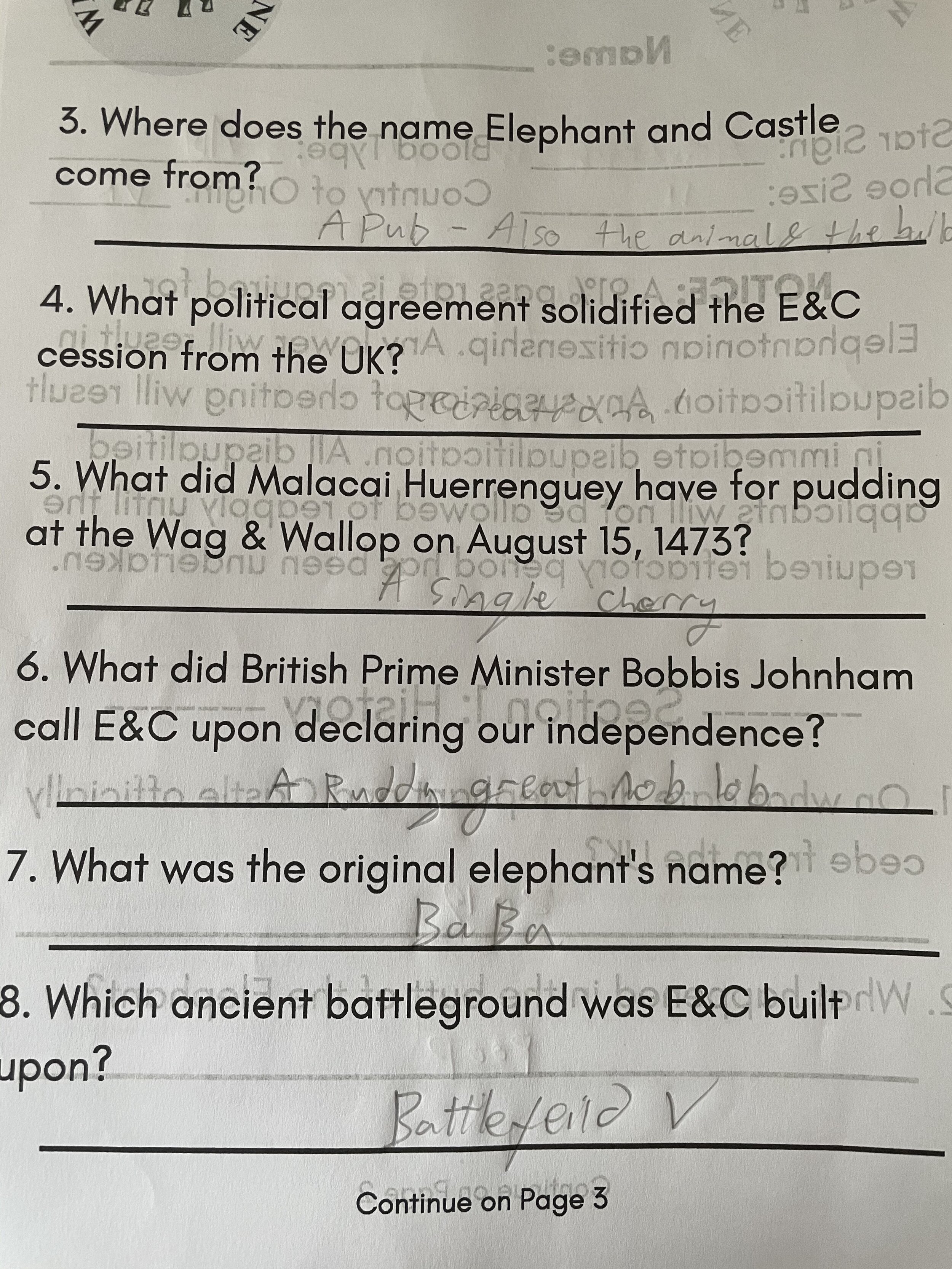

Romeo, D. and Potter, C. (2021) Gallery of Citizenship Test Content, digital images, CrushRoom, London.
Audience members were given three minutes to complete the citizenship test. A passing grade of 91% was required to become eligible for citizenship. The test was impossible to pass. While many of the answers to the questions were included in either the welcome speech or the orientation video, many answers were never provided, and three minutes was too short of a period to complete the test.
Romeo, D. (2021) Sovereign Song Reefer Madness, [online video]. Available at: https://youtu.be/dTPIrbTpHY8
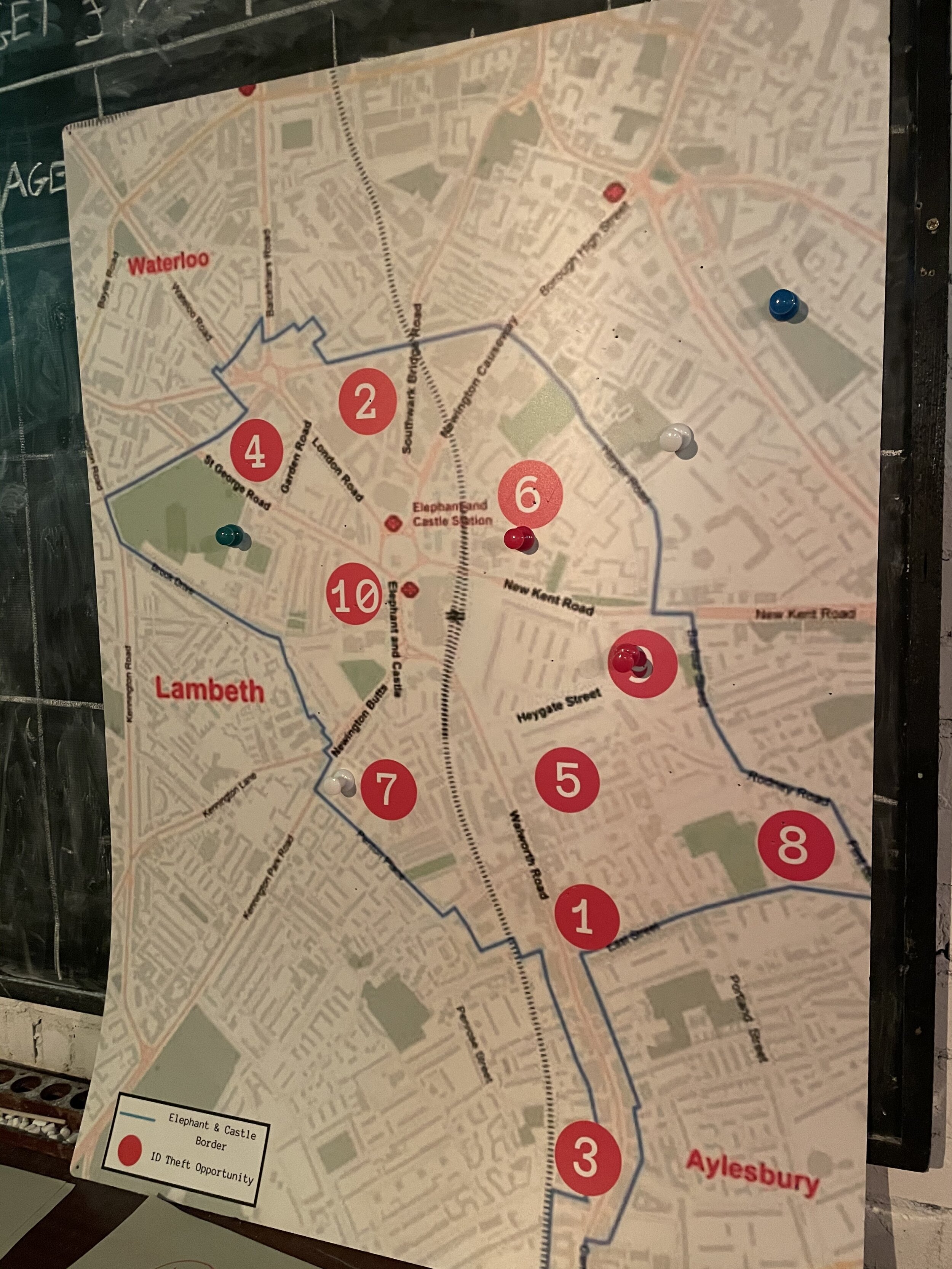
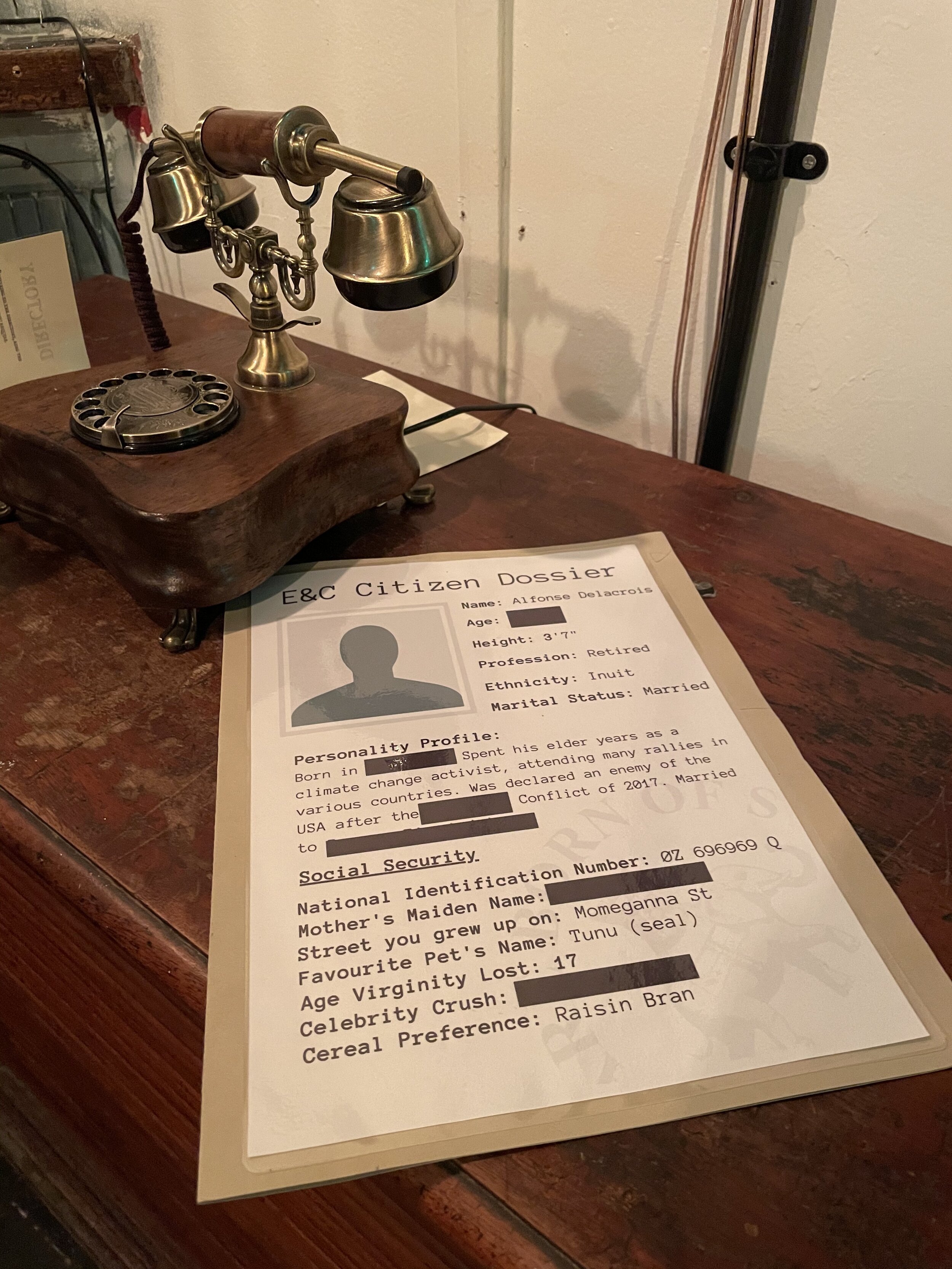

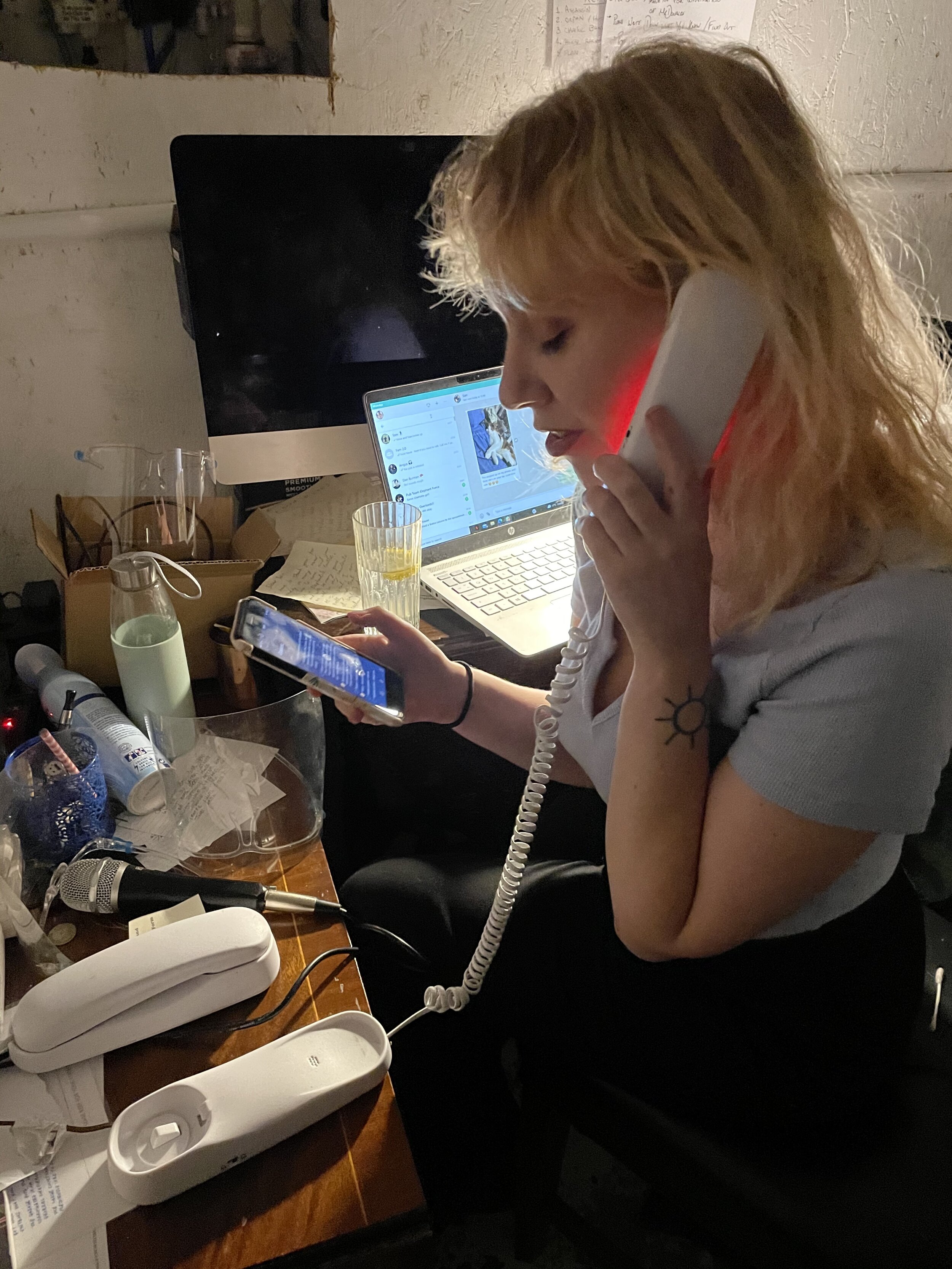
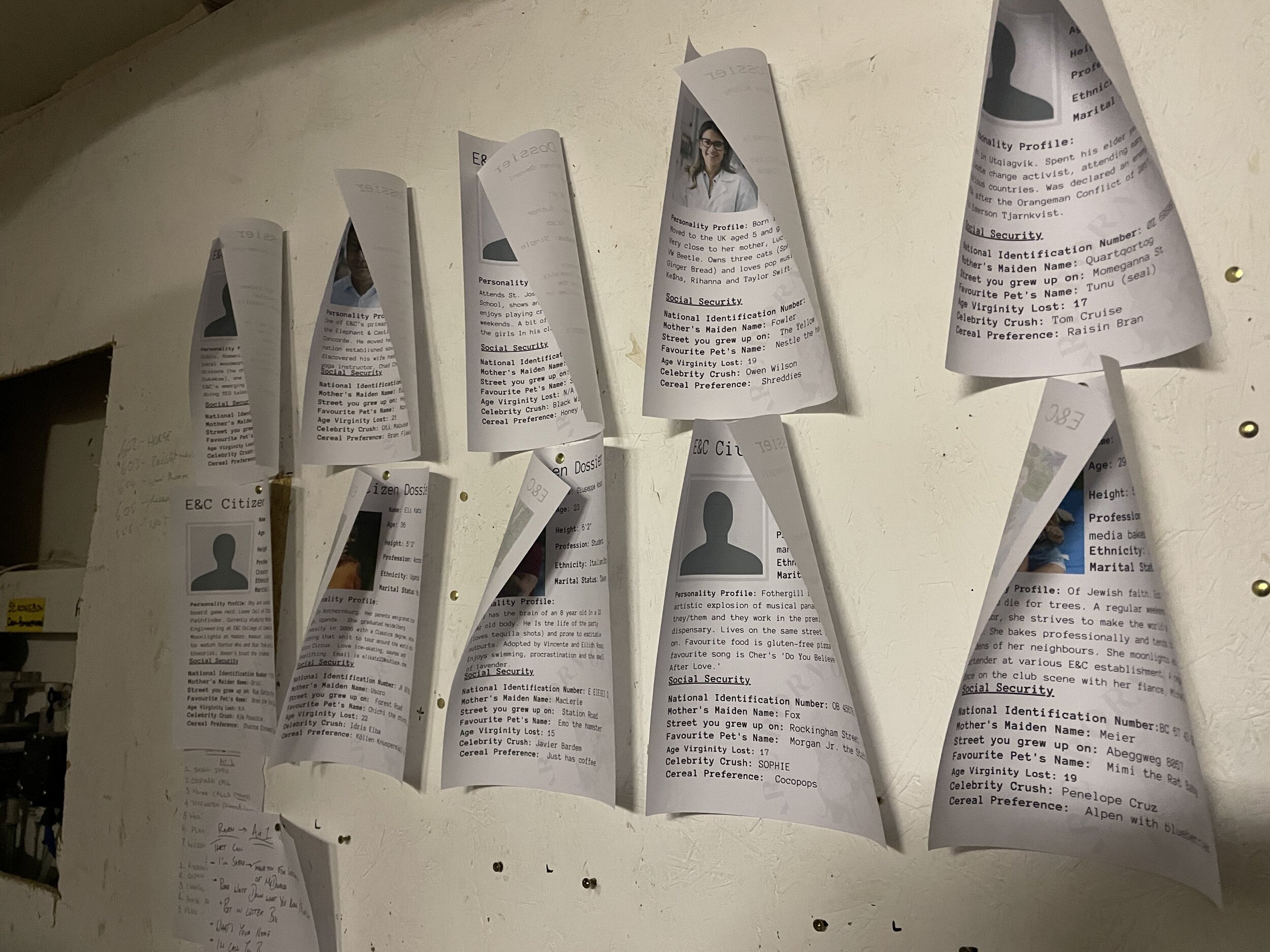














Romeo, D. (2021) Gallery of ID Theft Track Content, digital image and video, CrushRoom, London.
To steal an ID, audience members would first pin a spot on the map which correlated with a character profile. They would then need to find the missing information to complete the character profile, either by calling their ID owner over the phone or finding information about the character online.

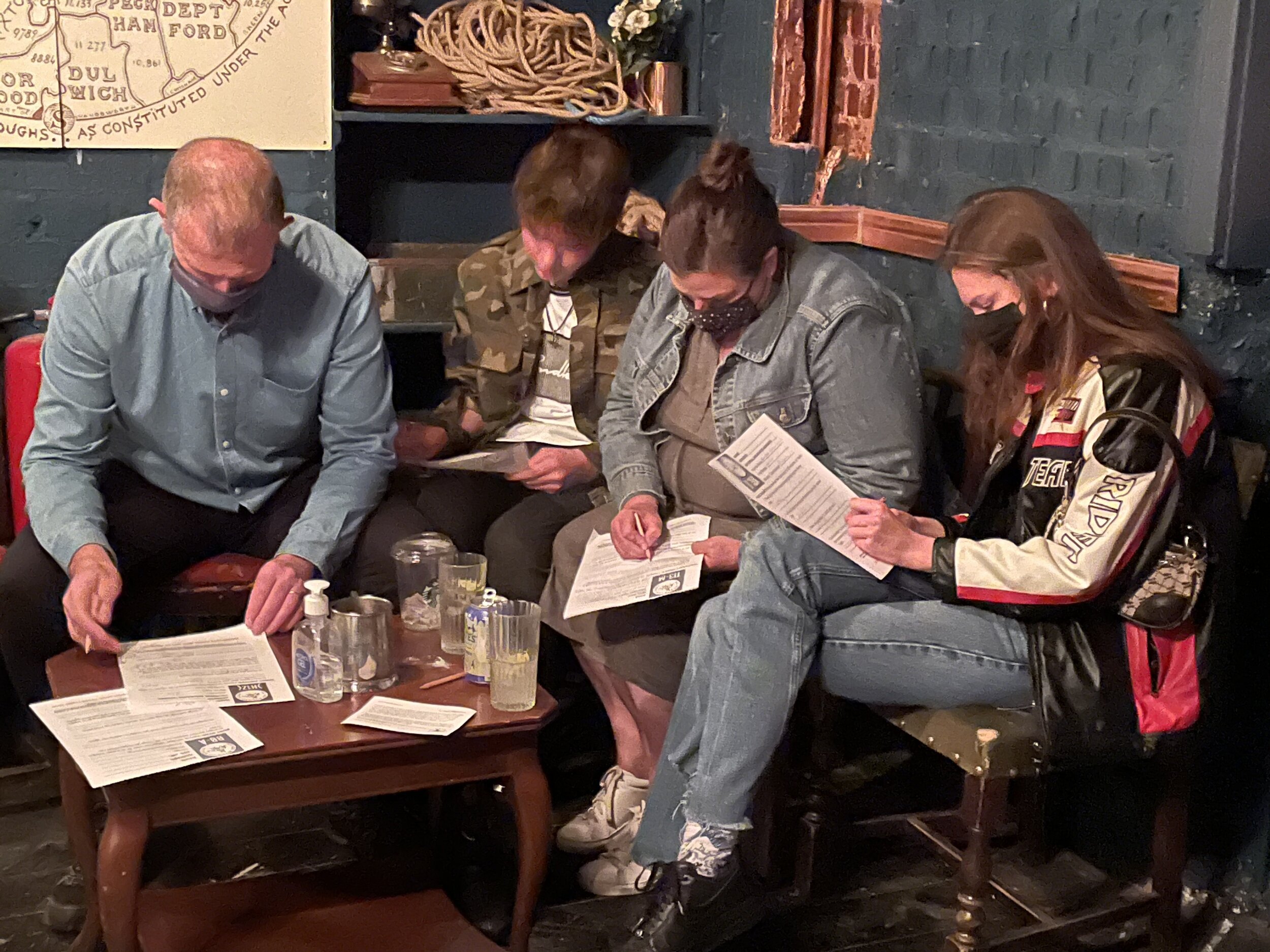
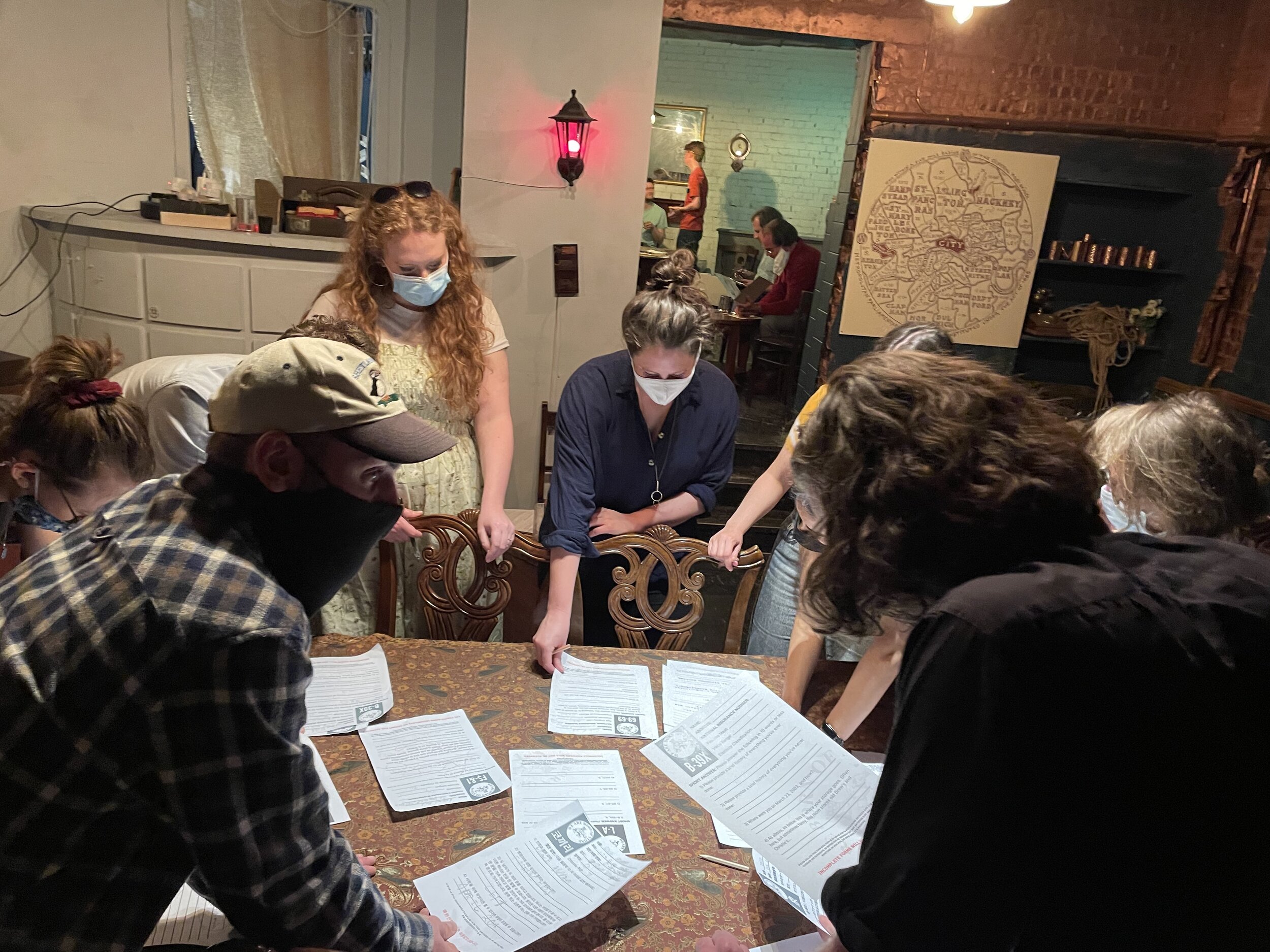













Morley, C. and Romeo, D. (2021) Gallery of Bureaucratic Track Content, digital images, CrushRoom and Sidetrack London, London.
Audience members were tasked with sorting through a wall of application forms in order to find the correct form to apply as a family. After solving the riddles, audiences found the location of a cryptex with a 6 letter answer, the clue to which was in the fine print of form L-A. The correct form was inside the cryptex.

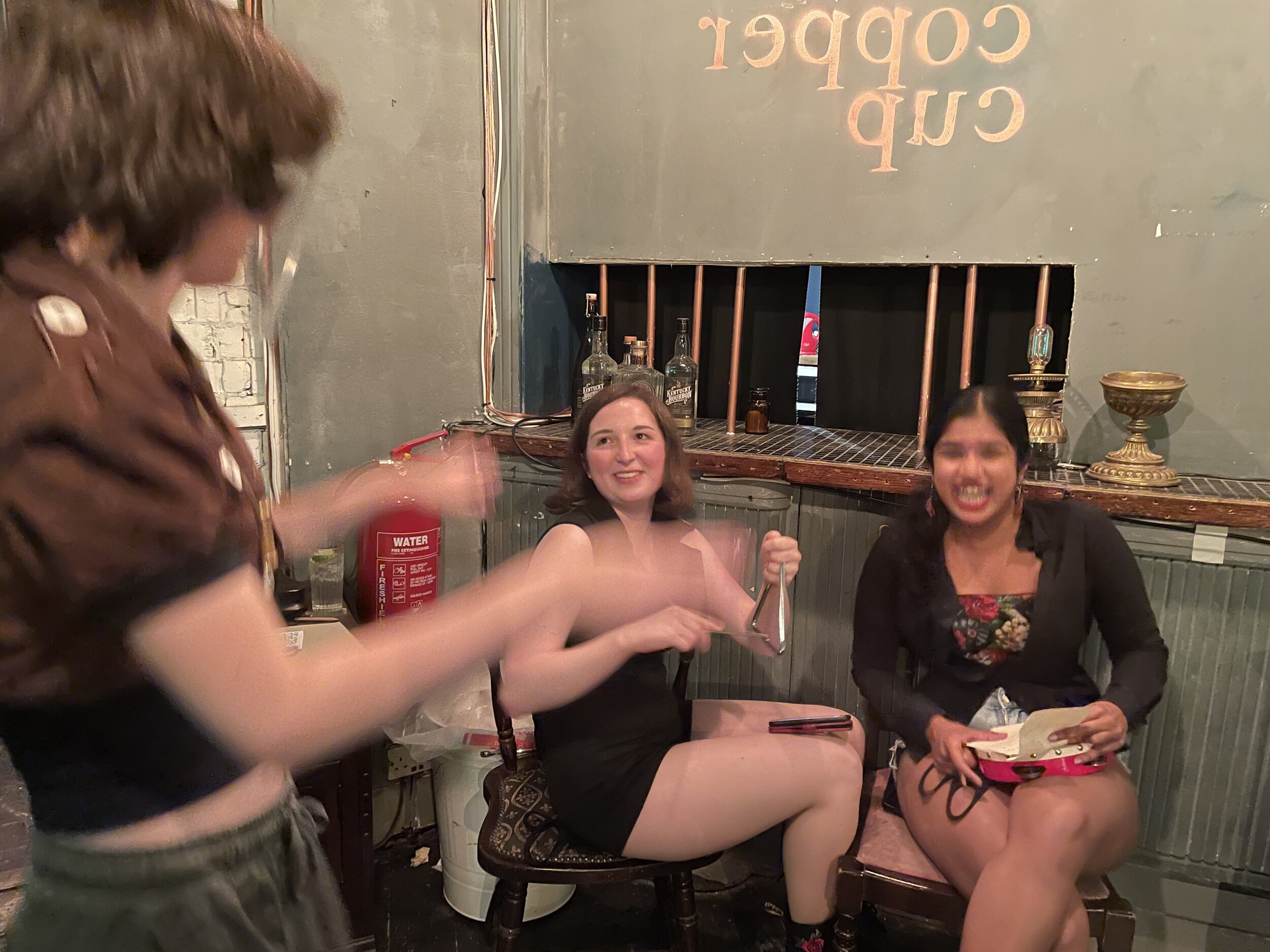

Romeo, D. (2021) Gallery of National Anthem Track Content, digital image and audio, CrushRoom, London.
Audience members were asked to write a national anthem for Elephant and Castle as a part of a Special Talent Visa application. A previous applicant had already composed the music, the audience simply needed to provide lyrics. The anthem was later performed for the entire audience.



Romeo, D. (2021) Gallery of Letter Writing Campaign Track Content, digital image, CrushRoom, London.
Audience members were asked to write a letter (either by post or email) to Bobbis Johnham, British Prime Minister, explaining why Elephant and Castle should remain a sovereign country, and why its citizens deserved not to die. Bobbis Johnham would then reply with a form letter informing them that the decision was out of his hands.
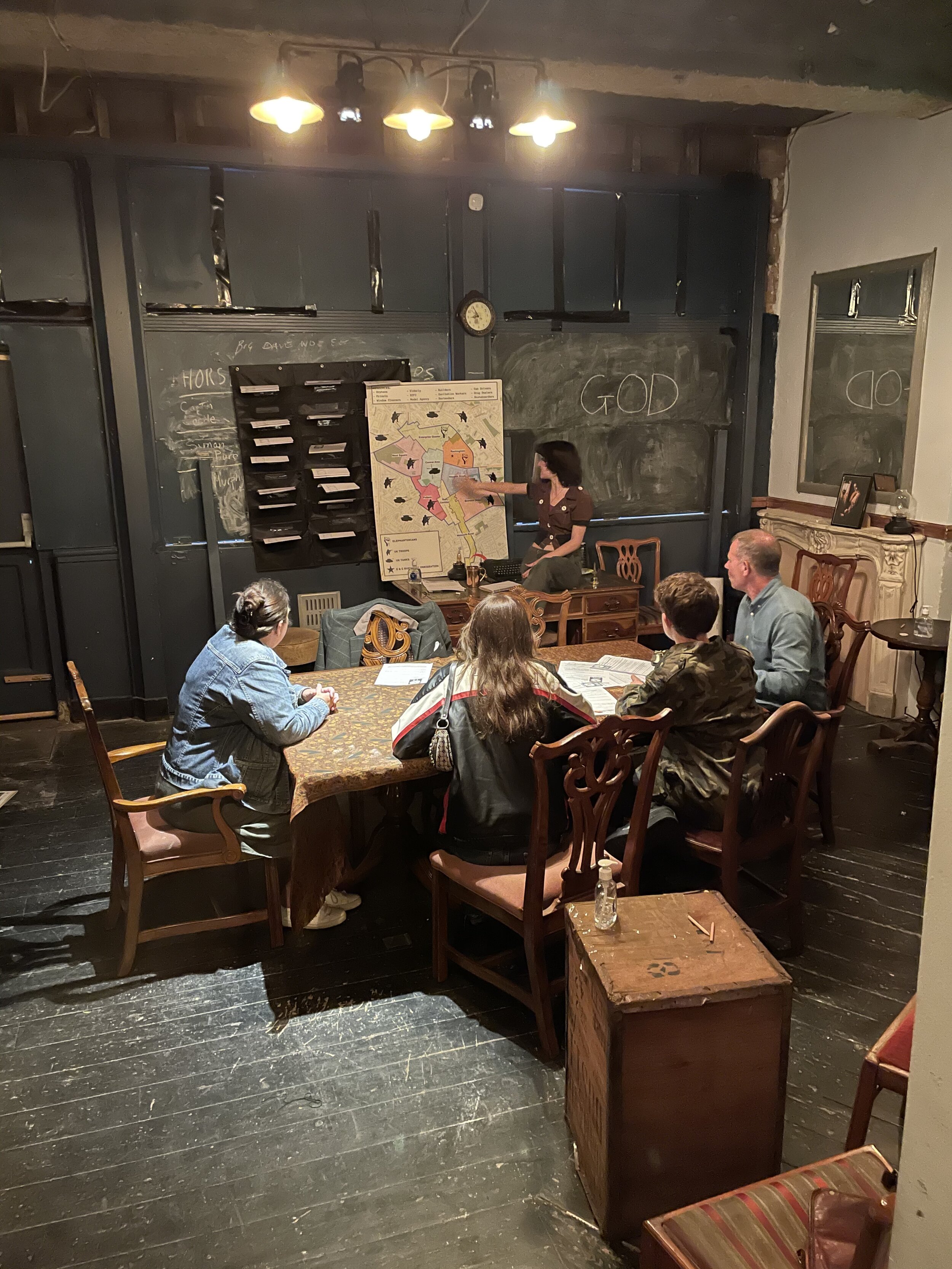

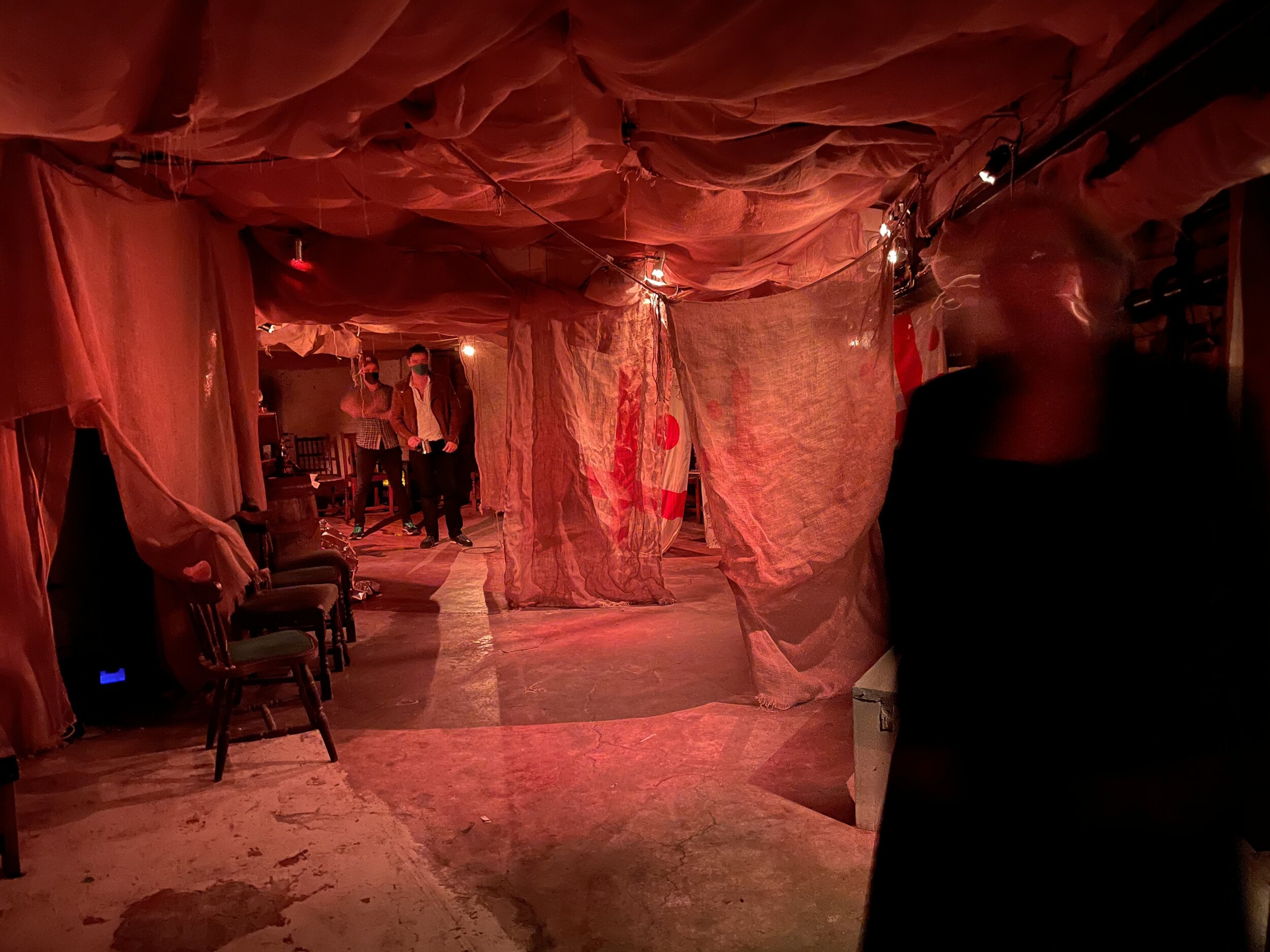
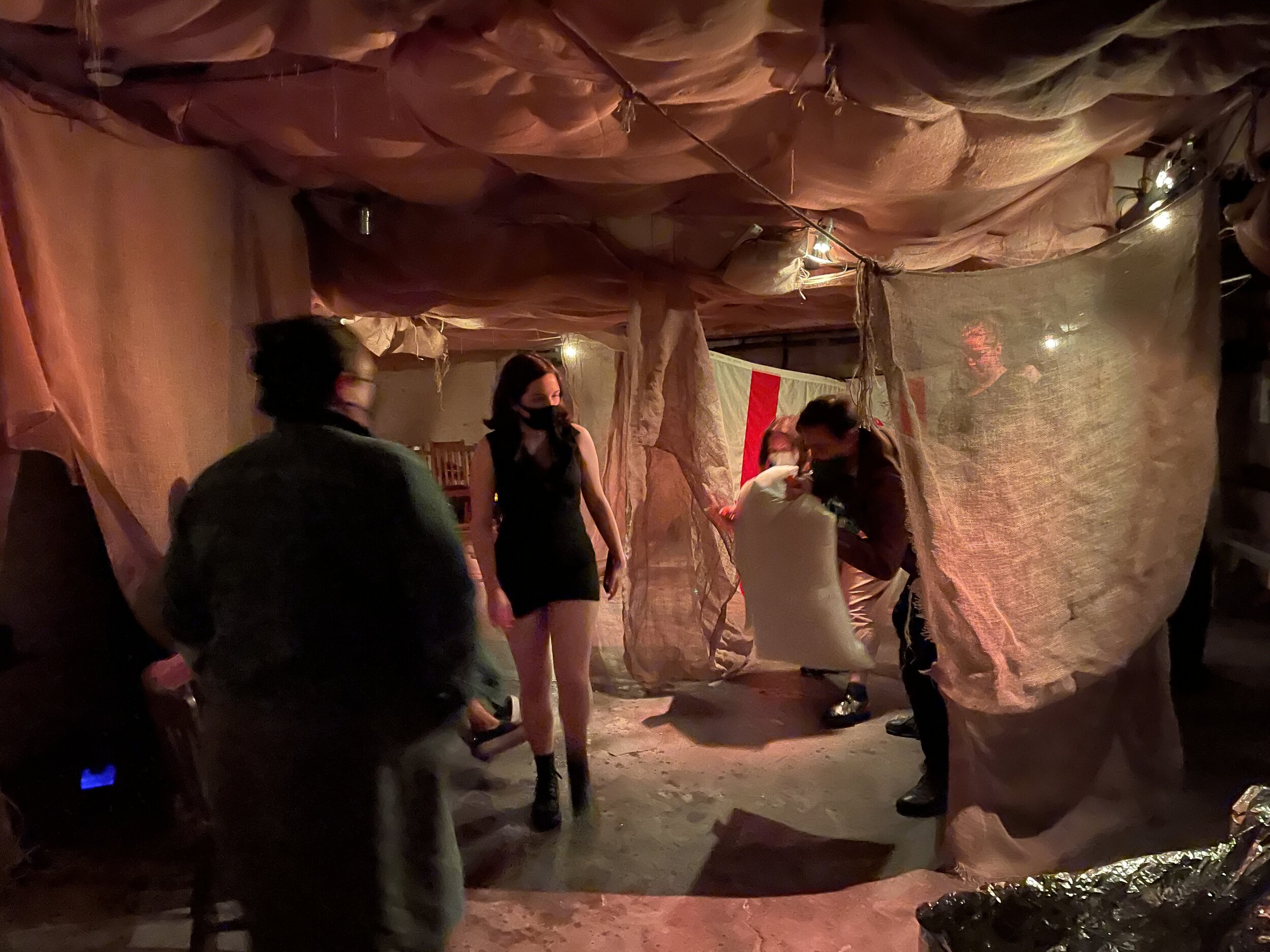
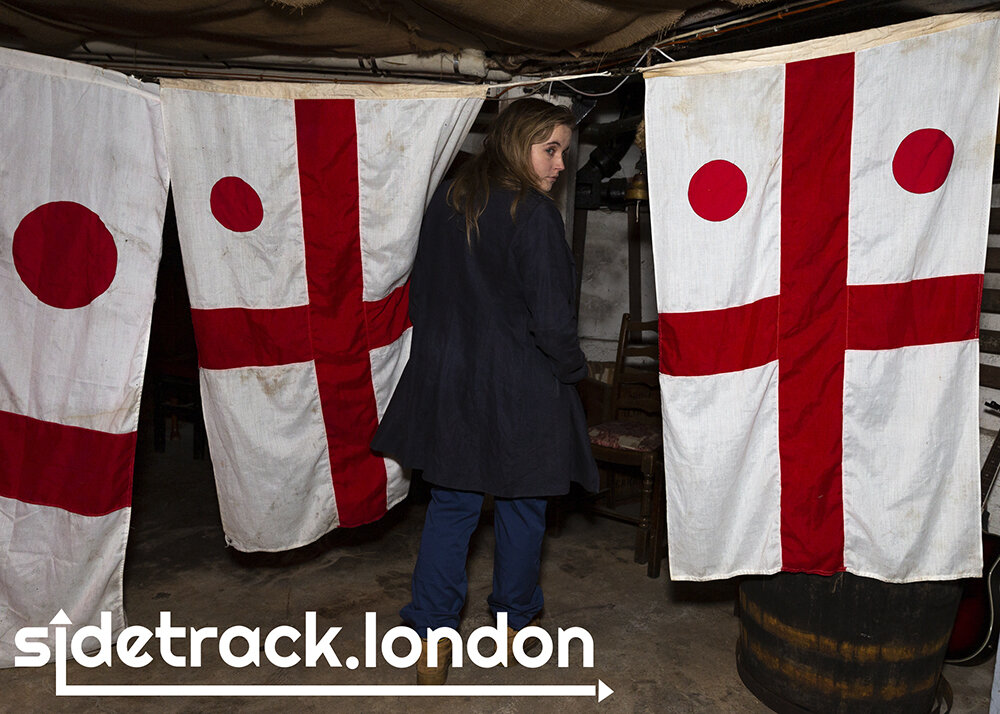
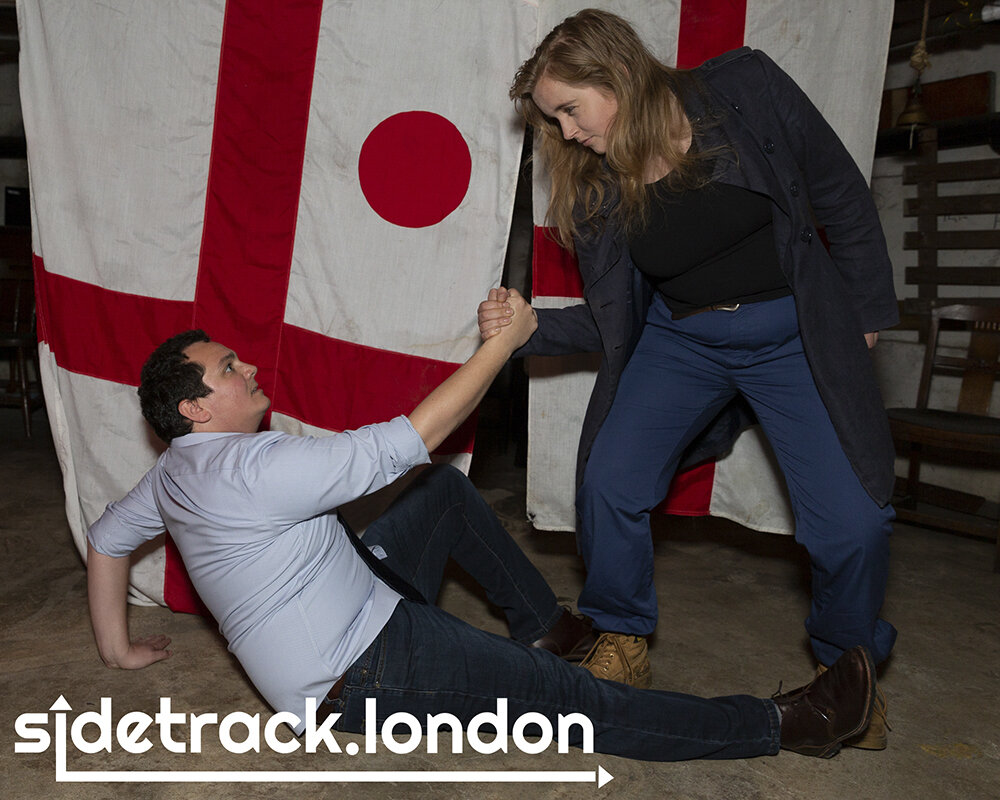



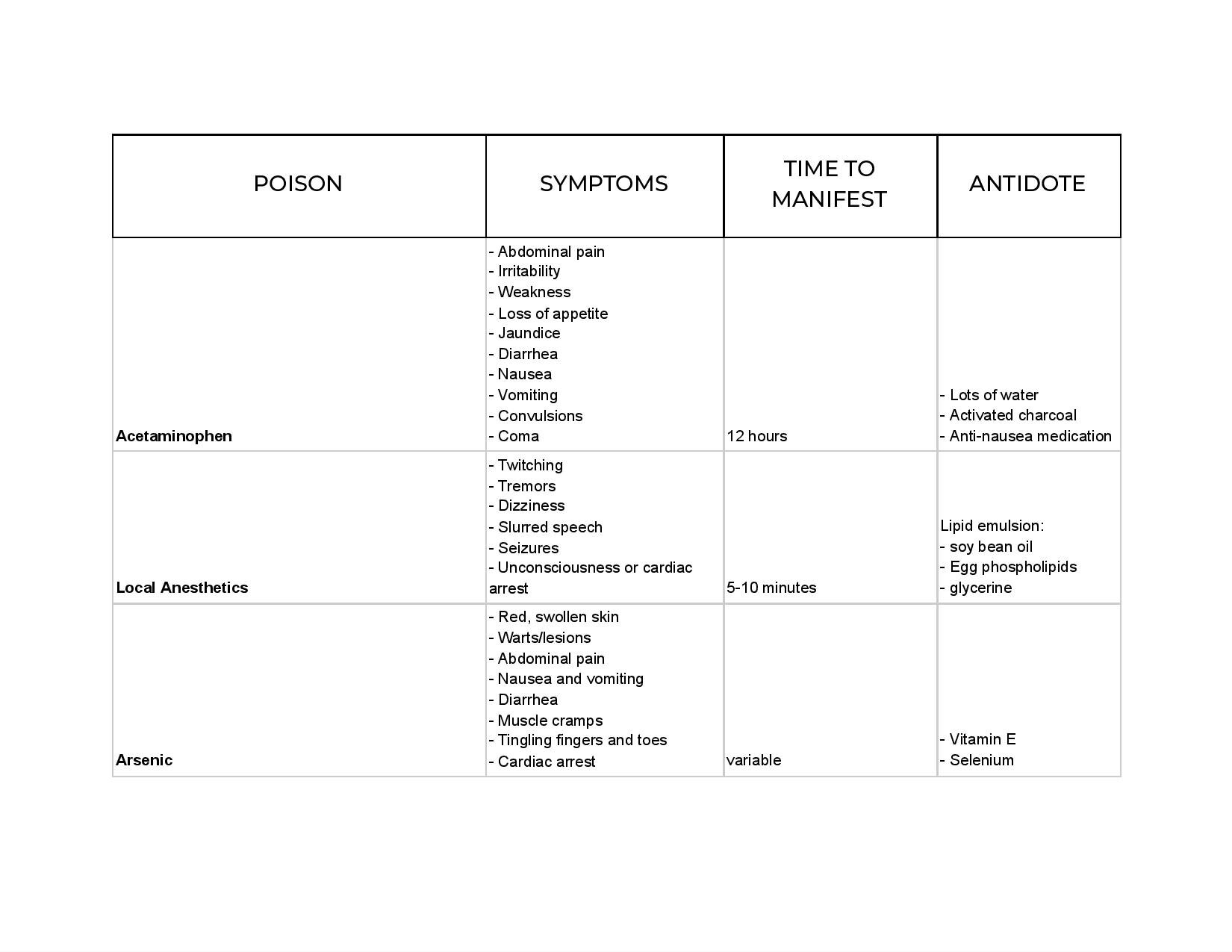


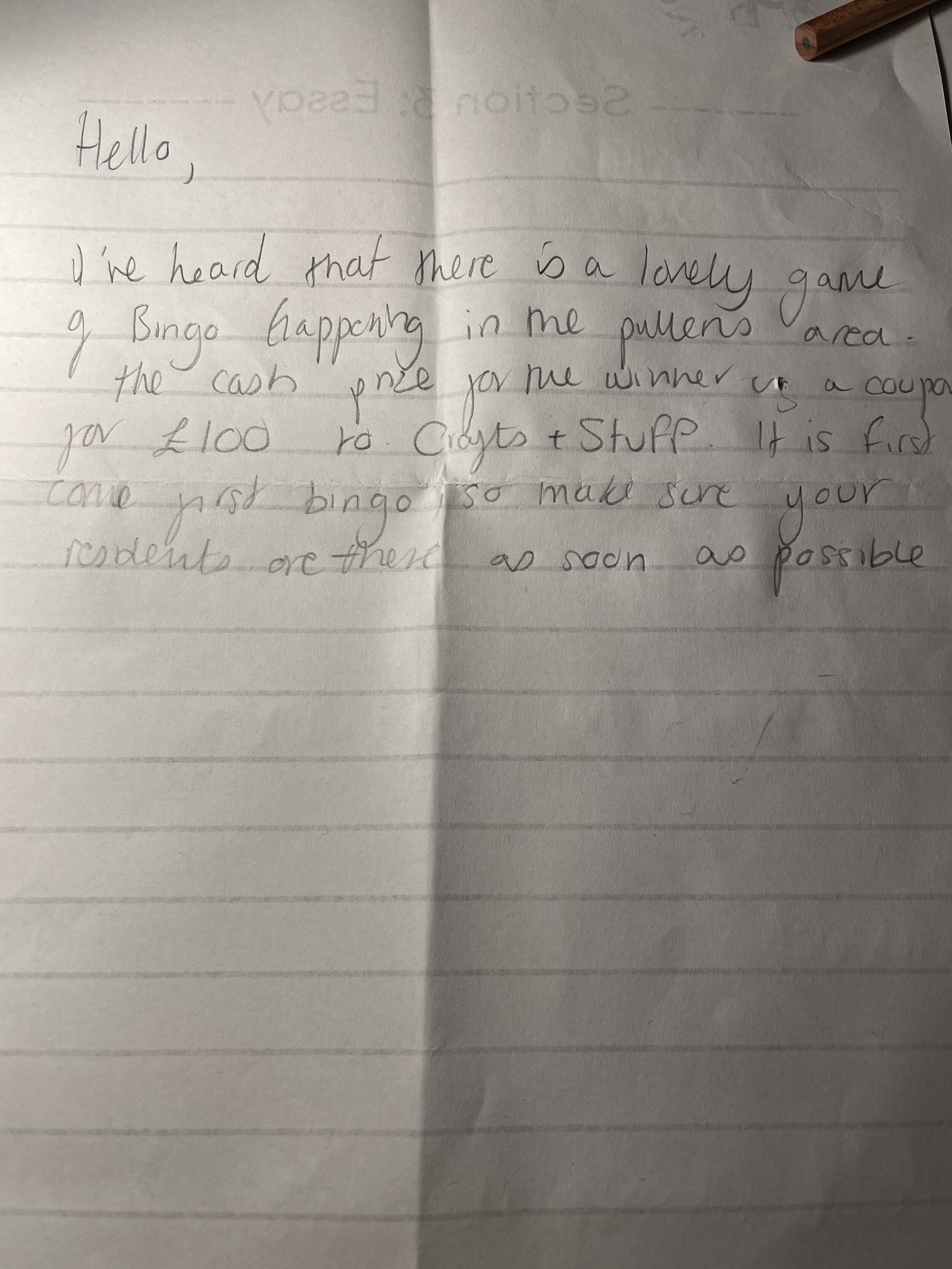
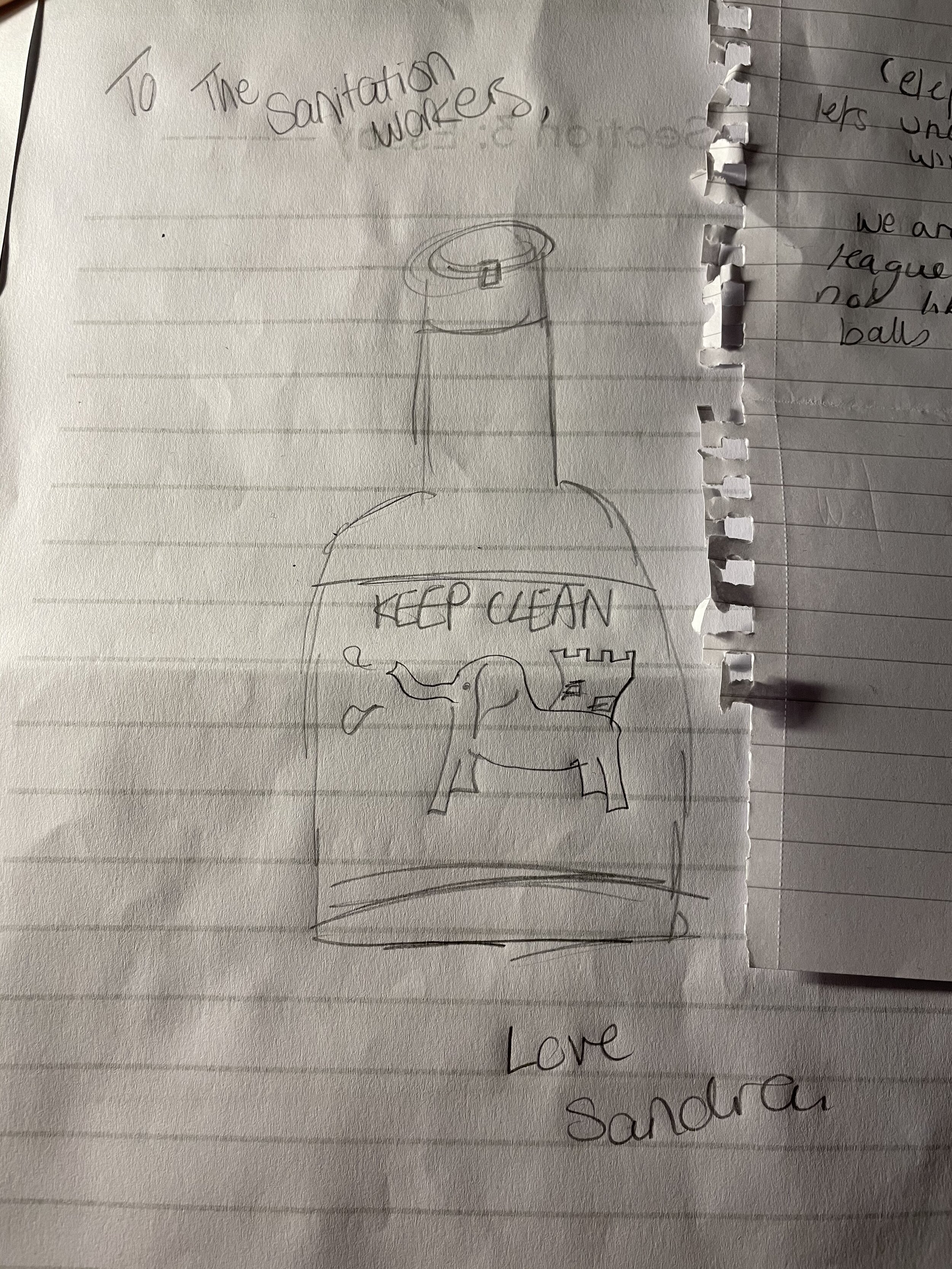
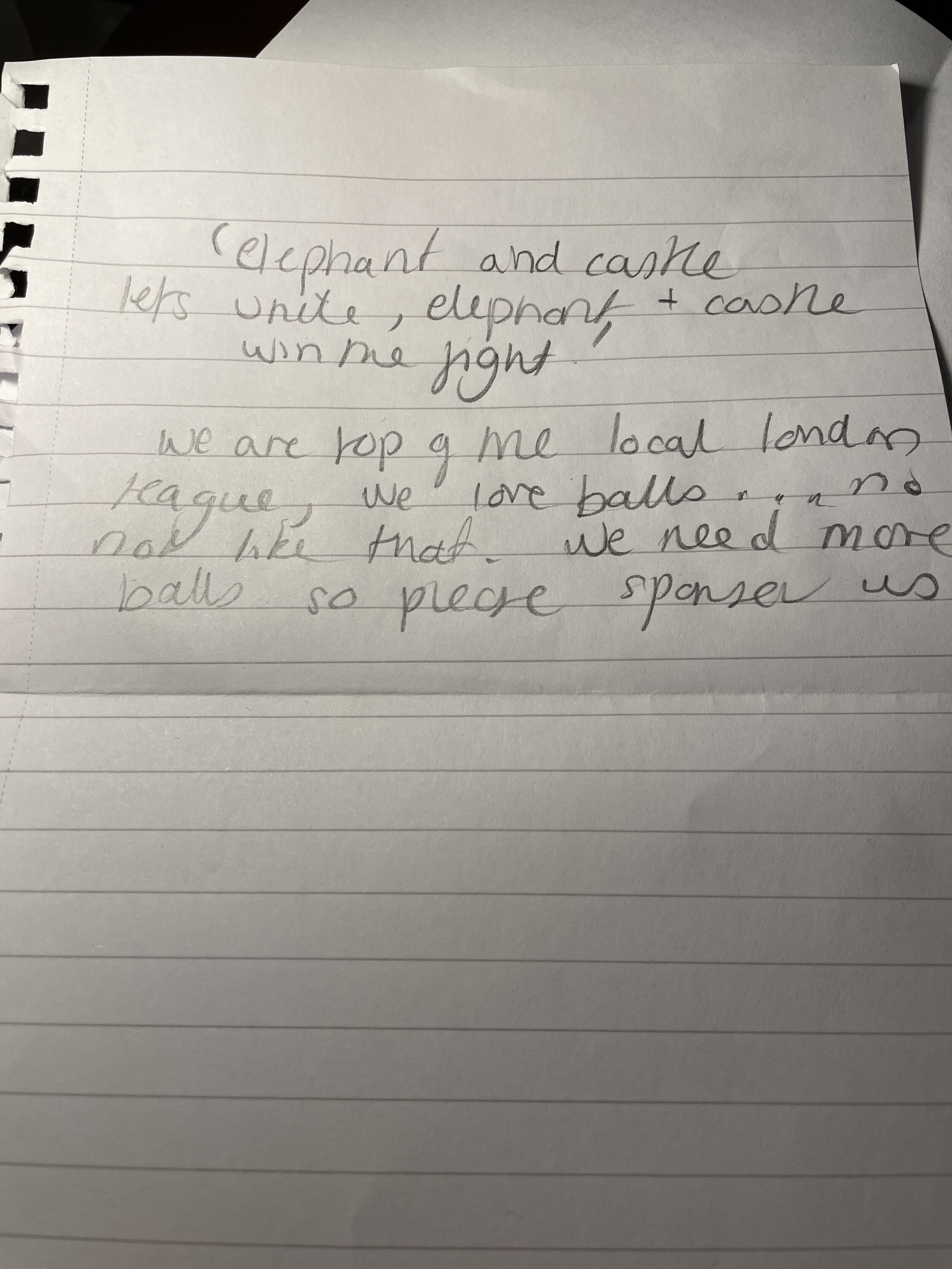
Morley, C. and Romeo, D. (2021) Gallery of Attack/Defend Content, digital images and video, CrushRoom and Sidetrack London, London.
Audience members were asked to either fend off a British invasion or plan an escape from the country. Audience members either planned a route using resources on a map, or enacted and trained warfare tactics in the basement. Each group was required to work together, as the groups affected one another. For example, planning to use bartenders to create molotov cocktails upstairs required audience members downstairs to teach the bartenders how to construct the molotov cocktails. Some responses required written requests to Elephant and Castle citizens. Once finalized, the plan was performed live via radio.
Romeo, D (2021) Gallery of Radio Broadcasts, audio, CrushRoom, London.
At certain points throughout the show, radio broadcasts would inform the audience of what was happening outside the office within the diegetic world. Depending on the audience’s choices, three endings were available, as indicated above. All broadcasts were accompanied by live performance and reactions, further facilitating the audience.